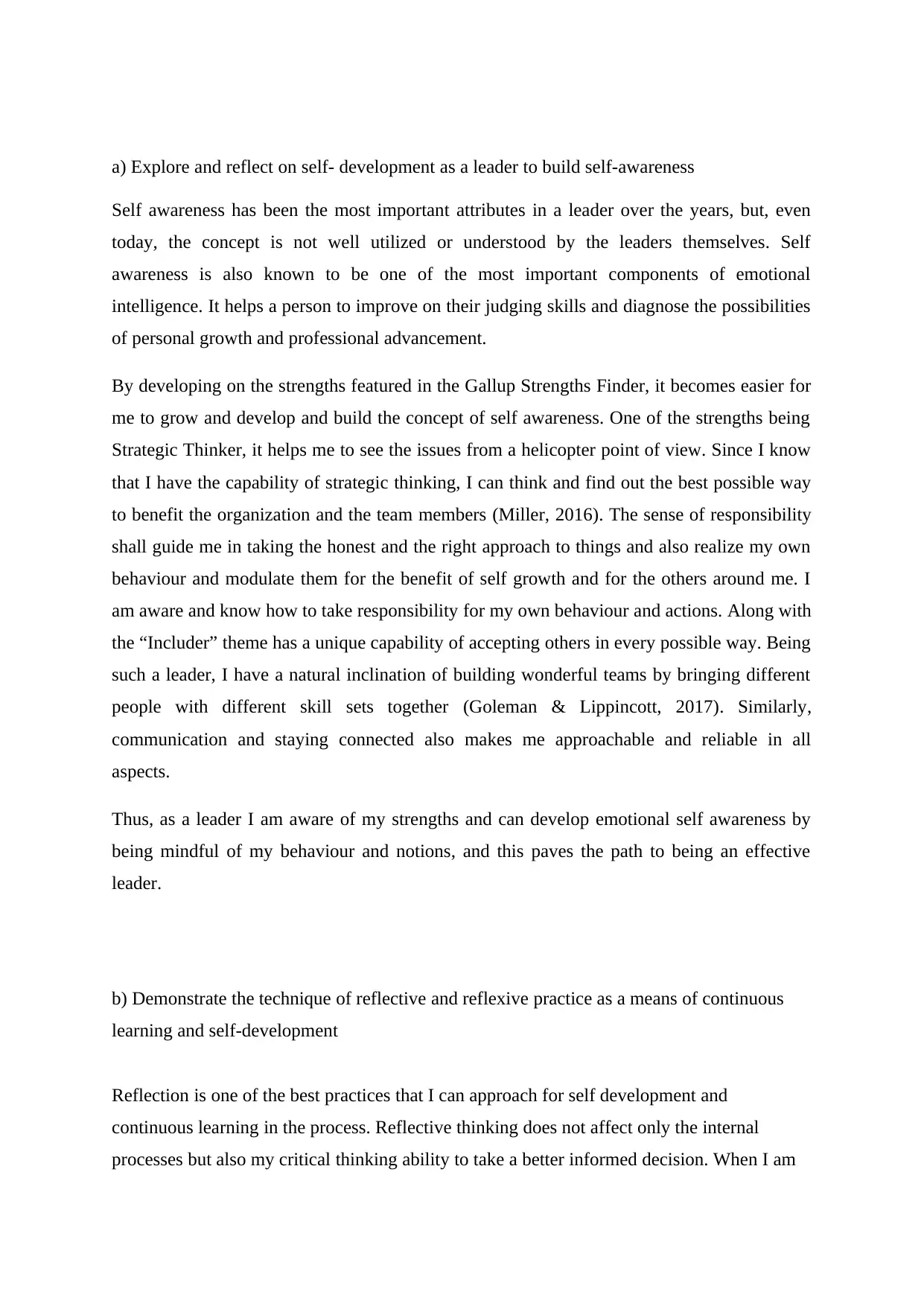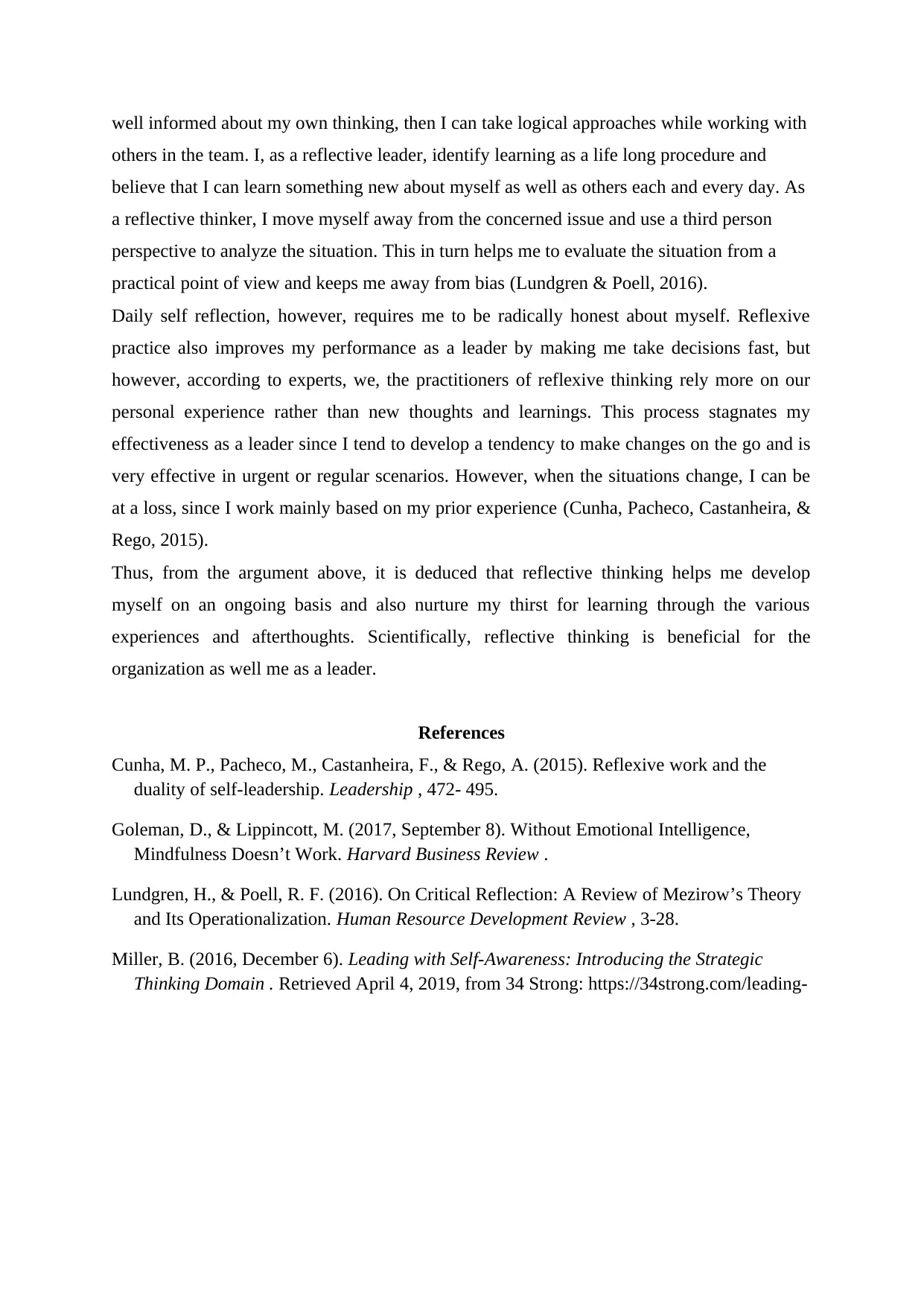MGT601: Self-Reflective Analysis on Leadership Development (Report)
VerifiedAdded on 2023/01/09
|3
|811
|97
Report
AI Summary
This report provides a self-reflective analysis of leadership development, focusing on the exploration of self-awareness and the demonstration of reflective and reflexive practices. The analysis begins by emphasizing the importance of self-awareness as a key attribute of effective leadership, referencing the Gallup Strengths Finder to identify strengths such as strategic thinking and the 'Includer' theme. The report then details how these strengths contribute to emotional intelligence and the ability to build strong teams. Furthermore, it demonstrates reflective and reflexive practices as tools for continuous learning and self-development, discussing the benefits of reflective thinking for informed decision-making and lifelong learning, while also acknowledging the limitations of reflexive practice, which may rely too heavily on past experiences. The report concludes by highlighting the scientific benefits of reflective thinking for both the individual leader and the organization.
1 out of 3









![[object Object]](/_next/static/media/star-bottom.7253800d.svg)